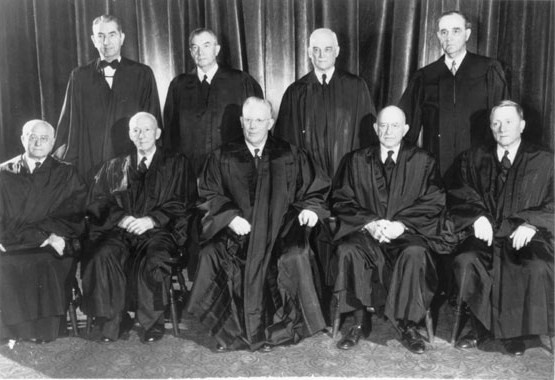c) Brown v. Board of Education
“Brown v. Board of Education,” the monumental 1954 Supreme Court case, stands as a pivotal moment in American legal and social history, signaling a seismic shift in the landscape of civil rights. This landmark decision unanimously declared that racial segregation in public schools was unconstitutional, striking a powerful blow against institutionalized racism. It effectively overturned the “separate but equal” doctrine that had been entrenched in American society since the 1896 Plessy v. Ferguson decision. This ruling not only catalyzed the desegregation of public schools but also ignited a series of legal and social battles against racial discrimination across various sectors of society. As a cornerstone achievement of the civil rights movement, Brown v. Board of Education represented more than a legal victory; it symbolized a profound commitment to equality and justice, challenging the very foundations of segregation and discrimination, and paving the way for significant societal transformation in the United States.

